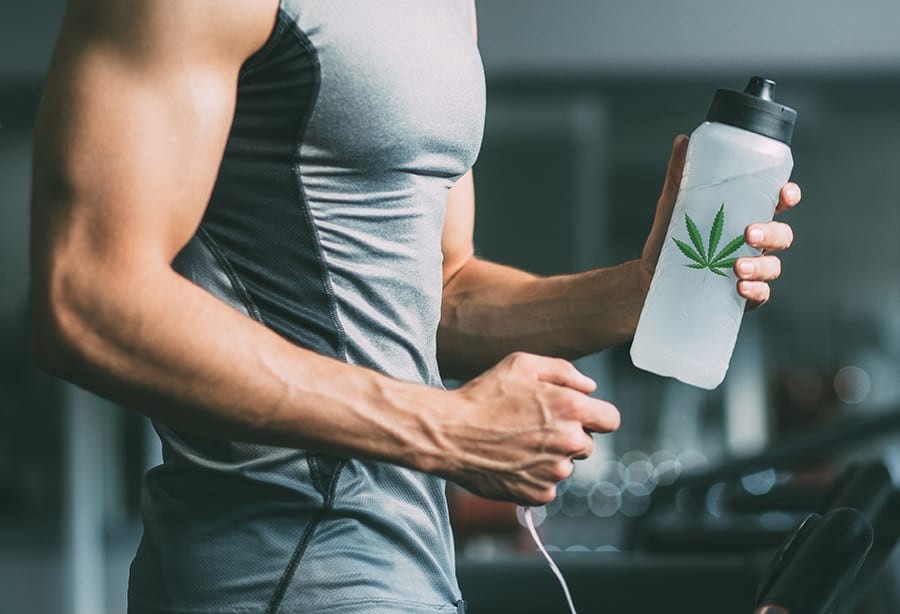In recent years, the legalization and use of CBD in some states have become a very prevalent topic in the sports world. It opens the doors for even more sponsorship opportunities with CBD brands, which is controversial among athletes, and if they should be partnering with these companies. Continuing the conversation with elite athletes Abby Dunkin (Paralympic wheelchair basketball player) and Leah West Casciano (Powerlifter), they discuss their opinions on CBD endorsements and if athletes should partner or use these CBD brands that are just starting to evolve.
For Dunkin, the use of CBD is nothing new to her.
“I’ve been actually using CBD for quite a few years, and so actually before it came really popular, it was really hard to get because people do have this negative notation on it. They think, ‘Oh you’re just going to get high all the time,’ which is completely false,” she declares.
However, there are potential consequences if an athlete chooses to partner with a CBD brand because of its ingredients.
“It’s also hard for (at least from the U.S. Olympic and Paralympic side) is that for us, we couldn’t use it in competition because we also get drug tested with Usada,” Dunkin discloses. “So you can’t have any amount of THC on a drug test or you’re going to be suspended for two years. We really have to pay attention to the labels, and even if the label says that there is no THC, we can’t take that risk and sacrifice potential two years of training competition for a product.”
Other than the potential risk of ingesting certain ingredients, Dunkin personally views CBD to be extremely helpful in both her personal and professional life.
“Now that I’m retired, I’m free to use whatever. I find it very beneficial for training and day-to-day life too, so I think the CBD industry is only going to go up-and-up. I think it’s definitely become a more popular item for sure,” Dunkin concludes.
Casciano points out that the use of CBD wasn’t even an option two years ago. Since then, it’s become a heavily disputed item.
“CBD is such a booming industry and has been for (close to) two years now?” she questions. “In the last year for sure. It’s interesting because it seems like it kind of came out of nowhere, and I guess it’s because of the laws changing regarding hemp plants, and so more states can use the plant in other ways than what we all usually know what the plant is for. So I think CBD is great.”
Not to mention the fact that it has taken some time for people to fully comprehend what CBD can do for athletes and their training.
“I think that it is interesting because like I said, it kind of boomed and came onto the scene just into mainstream media and marketing, so there was a lot of misinformation right off the bat,” Casciano declares. “I think that it took a few months (at least in my world) it took a while for people to realize what it even was and that it doesn’t have any type of properties that get you high or anything like that. A lot of it was education, and now people understand the recovery aspects of it. What it can do, how it can help, how it can benefit, and that anyone can use it and take it.”
Casciano points out that some companies are in the CBD industry for the money, so it’s important to find ones who are interested in helping with the recovery process.
“Now, it’s finding and filtering out the companies that are a good product and not just trying to make money by selling something from a plant that is now able to be used and sold everywhere.”
As a concluding thought, Casciano is amazed at how much the CBD industry has developed.
“It is interesting how CBD and technology and social media have just grown exponentially in the last year. I feel like you just see it everywhere you turn now,” Casciano states.
Research suggests that CBD can be used to alleviate pain and lower inflammation, which is why it’s an ongoing topic in sports. Many believe that athletes should be allowed to use CBD after their intense training sessions. The use of CBD would decrease the use of over-the-counter pain relievers, which can cause an opioid addiction among athletes. However, others have reservations about CBD because of the use of THC, which can show up on drug tests. As Dunkin pointed out, many athletes have to be drug tested before their competitions. If there are traces of THC in the CBD products that the athletes are using, it could result in a suspension from their sport indefinitely. Therefore, the topic of whether or not CBD should be allowed in the sports industry is still up for discussion. However, with the world constantly changing and progressing, there is a good chance it will become fully legalized in sports very soon.
To hear more from Dunkin and Casciano, watch the entire interview here.

